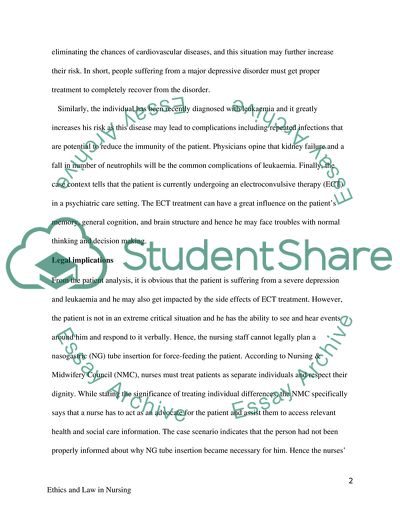Cite this document
(Ethics and Law in Nursing Essay Example | Topics and Well Written Essays - 2000 words - 1, n.d.)
Ethics and Law in Nursing Essay Example | Topics and Well Written Essays - 2000 words - 1. Retrieved from https://studentshare.org/nursing/1757960-ethics-and-law-in-nursing
Ethics and Law in Nursing Essay Example | Topics and Well Written Essays - 2000 words - 1. Retrieved from https://studentshare.org/nursing/1757960-ethics-and-law-in-nursing
(Ethics and Law in Nursing Essay Example | Topics and Well Written Essays - 2000 Words - 1)
Ethics and Law in Nursing Essay Example | Topics and Well Written Essays - 2000 Words - 1. https://studentshare.org/nursing/1757960-ethics-and-law-in-nursing.
Ethics and Law in Nursing Essay Example | Topics and Well Written Essays - 2000 Words - 1. https://studentshare.org/nursing/1757960-ethics-and-law-in-nursing.
“Ethics and Law in Nursing Essay Example | Topics and Well Written Essays - 2000 Words - 1”. https://studentshare.org/nursing/1757960-ethics-and-law-in-nursing.


